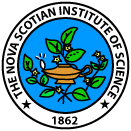
MEETINGS
MEMBERSHIP
PROCEEDINGS
ABSTRACTS
STUDENTS
LIBRARY
EXECUTIVE
BROCHURE
HALL OF FAME
HISTORY
LINKS
Monthly programmes and abstracts of meetings of the NSIS
|
1998–1999 1999–2000 2000–2001 2001–2002 |
2002–2003 2003–2004 2004–2005 2005–2006 |
Speaker List (1998–present)
4 October 1999
Nanotechnologies
Part 1: Nanoscale Science with Needle and CantileverDr. Manfred Jericho, Department of Physics, Dalhousie University
Part 2: Digital Holography with Photons and Electrons
Dr. Jürgen Kreuzer, Department of Physics, Dalhousie University
For many years techniques for the imaging of nanoscale structures of interest in the physical and biological sciences were typically unavailable for every laboratory, if not destructive for living systems. With the advent of the class of scanning probe microscopes, great strides have occurred and high-resolution imaging of surfaces and biological structures is now routine.
The first part of this presentation will review the basic operating principles of the Scanning Tunnelling Microscope (STM) and Atomic Force Microscope (AFM) and describe recent attempts with the AFM to study living bacteria.
The STM has also allowed a lens-less form of electron microscopy, in which a point source of electrons is used to produce a holographic image of a nanoscale object. The object can then be reconstructed directly from the image using fast numerical algorithms. The second part will describe the principles of digital in-line holography with both optical and electron point sources, and illustrate the technique with examples drawn from biology and materials science.
1 November 1999 (Panel Discussion)
The Sydney Tarponds: Environment and Health
Panelists:- Dr. Judith Guernsey (Dalhousie University Medical School)
- Prof. Helen Mersereau (Department of Engineering, University College of Cape Breton)
- Prof. Elizabeth May (Women's Health and Environment, Dalhousie University)
- Dr. Don Elder (Vice-President Environmental Engineering, Jacques Whitford Environment Ltd.)
The health implications of the Sydney tarponds and approaches to resolving this problem will be considered in open discussion. Panelists will briefly cover topics related to their areas of expertise, including environmental epidemiology, health risk assessment, engineering and remediation of contaminated sites, and legal issues. The interested public is invited to attend and participate.
6 December 1999
Urban Archaeology in Halifax: State of the Art
Dr. Paul Erickson, Dept. of Anthropology, Saint Mary's UniversityDoing archaeology in urban settings offers special challenges and opportunities for investigating heritage underground. In Europe and the United States, many municipalities have adopted urban archaeology policies that make such investigations efficient, educational, and exciting. In Canada, a few municipalities have pioneered urban archaeology programs. While much more could be done with Halifax's rich archaeological resources - with the application of political will, creativity, and a little money—the Municipality of Halifax has witnessed a promisingly wide range of archaeology projects. In his talk, Dr. Erickson will highlight the archaeology projects that have taken place in the Halifax Regional Municipality and discuss what we have learned from them about Halifax's past.
3 January 2000
Game Theory
Dr. Richard Nowakowski, Department of Mathematics and Statistics, Dalhousie UniversityThis lecture will give a brief introduction and then a tour of the high- (and low-) lights of Game Theory.
Learn why the central result in Game Theory was nominated as one of the top five mathematical theorems of the 20th century (only ones which had an impact on society at large were eligible). There have been numerous advances in Biology and Economics through a game theoretic approach as well as in mathematical games. But Game Theory seems to raise more questions than it answers, like: the Prisoner's Dilemma; Newcomb's Paradox; and why should people be willing to pay more 'taxes' rather than less (in mathematical game!).
7 February 2000
Disease and the Environment
Part 1: What we breathe is what we wheeze.Dr. Sandy Kapur (Pediatric Immunologist, IWK-Grace Health Centre) will discuss the allergens and irritants that play a role in asthma, and how we may control them.
Part 2: Sick makes drugs sicker.
Dr. Ken Renton (Professor of Pharmacology, Dalhousie University) will
answer the question: "How can diseases and the environment affect the
safety of the drugs we take?"
6 March 2000 (Panel Discussion)
Genetically Modified Organisms: What are the Facts?
Panelists:
- Dr. Sean Hemmingsen, Head, Gene Expression group, NRC Plant Biotechnology Institute, Saskatoon
- Dr. Vett Lloyd, Biology professor (Evolutionary Genetics), Dalhousie University
- Dr. Jerzy Nowak, Plant Scientist, NS Agricultural College, Truro
- Dr. David Patriquin, Biology Professor (Agricultural Science), Dalhousie University
This Panel Discussion will address some of the issues involved with Genetically Modified Organisms. The panelists will briefly cover topics related to their areas of expertise, including human health aspects and impacts on the "ecosphere". The interested public is invited to attend and participate.
3 April 2000
Wildlife and Conservation Biology
Dr Liette Vasseur, Associate Professor, Environmental Studies, St. Mary's UniversityDr. Tom Herman, Professor, Centre for Wildlife and Conservation Biology, Acadia University
1 May 2000 (Annual General Meeting)
The Life of Another Canadian Hero, Dr. Brock Chisholm
Dr. John Farley, Professor (retired), Biology Department, Dalhousie University - Nova Scotian Institute of Science
Please report broken links to the webmaster.